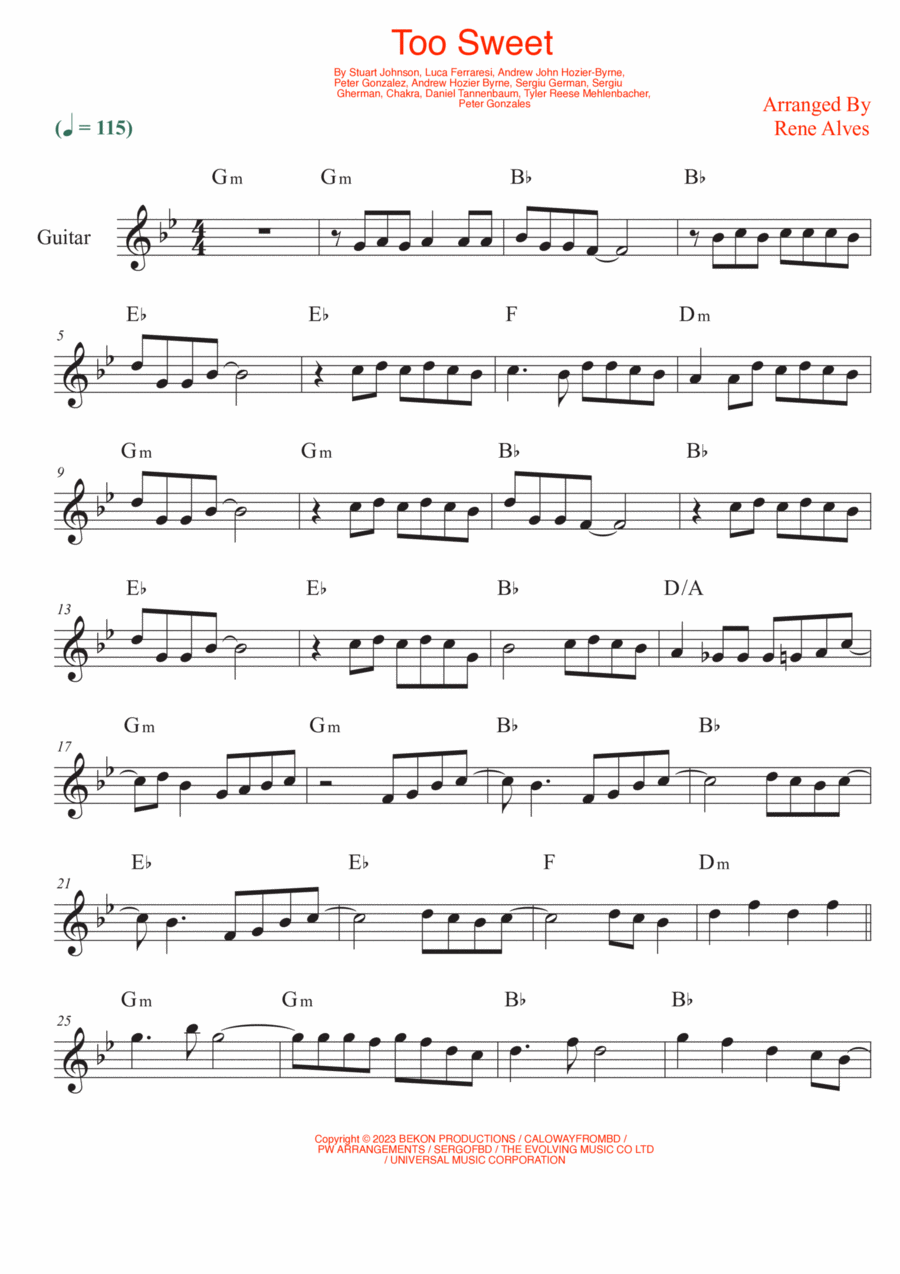Guitar,Piano,Vocal,Voice - Level 1 - Digital Download SKU: A0.1410207 By Hozier. By Andrew Hozier Byrne, Andrew John Hozier-byrne, Chakra, Daniel Tannenbaum, Luca Ferraresi, Peter Gonzales, Peter Gonzalez, Sergiu German, Sergiu Gherman, Stuart Johnson, and Tyler Reese Mehlenbacher. Arranged by Rene Alves. Contemporary,Multicultural,Pop,Rock,Wedding,World. Score. 3 pages. Rene Alves #992624. Published by Rene Alves (A0.1410207). Guitar sheet music for the beginner musician of the song Too Sweet - Hozier. The sheet music is in large size, great for reading on tablets.
